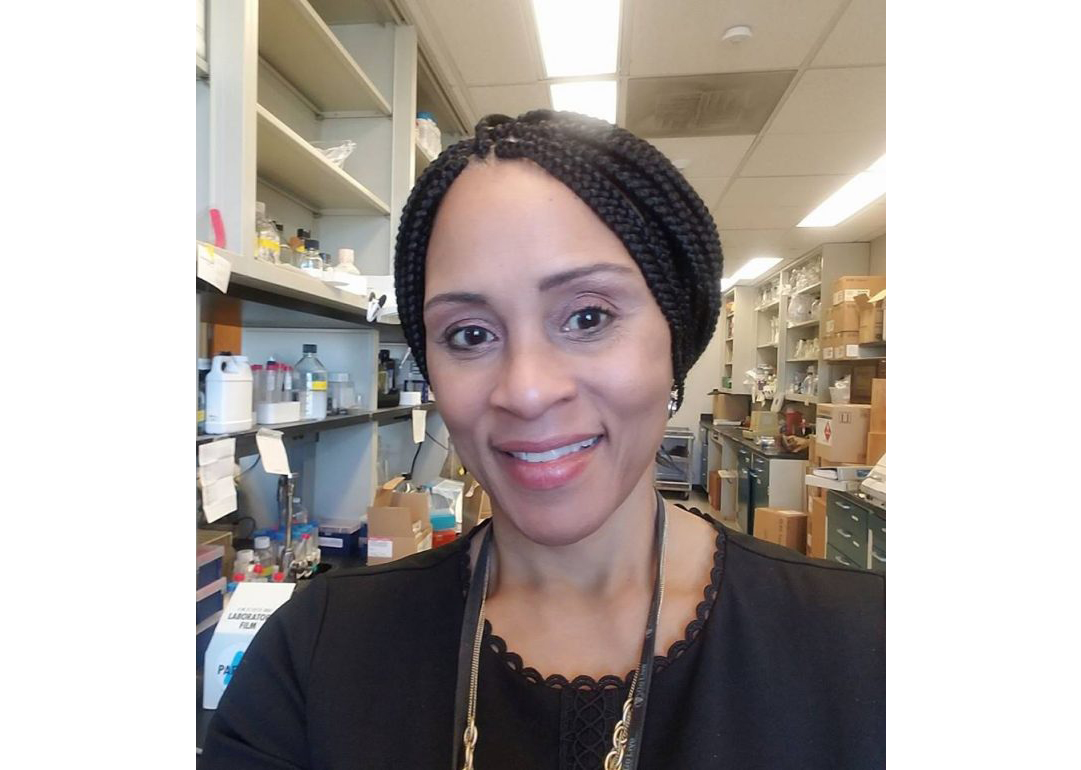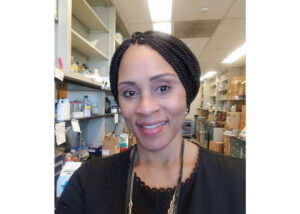
16 Apr Hartwell Foundation Award Received by CWRU Professor
Yolanda Fortenberry, an associate professor of biology at Case Western Reserve University studying possible therapies for debilitating sickle cell disease, is one of just 12 researchers nationally chosen for a prestigious 2020 Hartwell Individual Biomedical Research Award and designation as a Hartwell Investigator by The Hartwell Foundation.
Each year, The Hartwell Foundation, based in Memphis, invites a select number of institutions nationally to nominate faculty involved in early-stage, innovative biomedical research not yet qualified to receive significant funding from outside sources, and with the potential to benefit children of the United States.
The 12 researchers represent 10 institutions nationally. In the 2020 competition, 16 institutions were invited to participate.
 “I’m absolutely delighted to receive this award from a foundation that has a long history of funding research that benefits children in the United States,” Fortenberry said. “The funds will catapult my research, allowing me to advance my career to the next level. The outcomes of my work have the potential to improve the lives of children in the United States while also addressing a critical health disparity that is impacting our communities.”
“I’m absolutely delighted to receive this award from a foundation that has a long history of funding research that benefits children in the United States,” Fortenberry said. “The funds will catapult my research, allowing me to advance my career to the next level. The outcomes of my work have the potential to improve the lives of children in the United States while also addressing a critical health disparity that is impacting our communities.”
Each award provides support for three years at $100,000 in direct costs per year. Fortenberry was chosen for her research proposal titled, “Sickle Cell Disease Curative Therapy: Targeting Hemoglobin S Polymerization with Bifunctional Nongenomic Strands of RNA.”
According to the Centers for Disease Control and Prevention, sickle cell disease (SCD) is a group of inherited red blood cell disorders. Healthy red blood cells are round and carry oxygen throughout the body through small blood vessels. In someone with SCD, the red blood cells become hard and sticky and take the shape of a “C,” like a sickle.
This change in shape prevents red blood cells from flowing smoothly through blood capillaries responsible for exchanging oxygen in tissues, causing significant pain, depriving the lungs, kidneys, spleen and brain of oxygen-rich blood, and possibly causing irreversible organ failure.
The sickle-shaped red blood cells are inflexible and break down more easily, which contributes to anemia, fatigue and delayed growth and development in children. Children with SCD face long-term chronic and debilitating symptoms of pulmonary hypertension, ulcers, stroke, vision loss, lower quality of life and shortened lifespan.
The incidence of the sickle cell trait varies greatly among different races and ethnicities, but is highest among African Americans and Hispanic Americans. The only cure for SCD is a bone-marrow transplant, but less than 18% of children qualify for this procedure due to the shortage of compatible donors. Most pediatric patients are treated only for the complications of SCD.
Fortenberry proposed developing a therapy for SCD that uses molecules that prevent formation of sickled red blood cells.
In selecting awardees, the foundation considers:
- The compelling and transformative nature of the proposed innovation;
- The extent to which a strategic or translational approach might accelerate the clinical application of research results to benefit children of the United States;
- The extent of collaboration in the proposed research;
- The institutional commitment to provide encouragement and technical support to the investigator; and
- The extent to which funding the investigator will make a difference.
“In our 15th year providing financial support of innovative, early-stage biomedical research with the potential to benefit children, the 2020 competition for Individual Biomedical Research Awards was once again extremely competitive,” said Fred Dombrose, president of The Hartwell Foundation. “Nominees who received an award leveraged internal support and guidance from their participating institution, as well as the experience of previous Hartwell Investigators.”
The 2020 award-winning proposals represent early-stage, innovative and cutting-edge technology in medicine and biomedical engineering, covering research areas that include cancer, diagnostic imaging, infectious disease, medical diagnostics, molecular biology, neurobiology, physiology and tissue engineering.
While significant early-stage funding benefits individual researchers, participating Hartwell institutions also receive recognition in the form of Hartwell Fellowships. For each nominee selected for an Individual Biomedical Research Award, the sponsoring participating institution receives one Hartwell Fellowship to designate for a qualified early-career postdoctoral researcher. Each fellowship provides support for two years at $50,000 direct cost per year for specialized training in biomedical research.
Case Western Reserve soon will announce the next competition for Hartwell Awards through the Office of Research and Technology Management.






